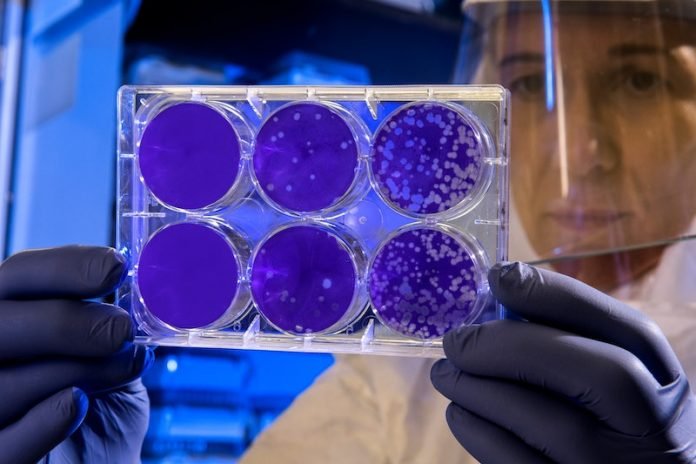
A recent study from MIT has found a new way to stop lung damage in COVID-19.
One of the defining features of COVID-19 is the excessive immune response that can occur in severe cases.
This burst of immune overreaction also called a cytokine storm damages the lungs and can be fatal.
The researchers developed specialized proteins, similar in structure to antibodies, that they believe could soak up these excess cytokines.
The proteins can be injected into the body and bind to the excessive cytokines as generated by the cytokine storm, removing the excessive cytokines and alleviating the symptoms from the infection.
The study is published in QRB Discovery. One author of the study is Rui Qing, an MIT research scientist.
The researchers’ work on blocking cytokine storms grew out of a project to develop modified versions of membrane-embedded proteins.
These proteins are usually difficult to study because once they are extracted from the cell membrane, they only maintain their structure if they are suspended in special types of detergents.
Following the work, the team started designing water-soluble versions of proteins known as cytokine receptors.
These receptors are found on the surface of immune cells, where they bind to cytokines—signaling proteins that stimulate inflammation and other immune responses.
The team believed that proteins that mimic these cytokine receptors could help combat cytokine storms, which can be produced by viral or bacterial infections, including HIV and hepatitis.
They can also occur as a side effect of cancer immunotherapy.
The researchers also attached an antibody segment called the Fc region to their water-soluble receptor proteins.
This region helps to further stabilize the proteins in the bloodstream and makes them less likely to be attacked by the immune system.
The researchers have filed for patents on the proteins that they designed, as well as on their overall approach to creating water-soluble cytokine receptors.
They are now planning to do additional tests in human cells and in animal models of COVID-19 infection.
Copyright © 2020 Knowridge Science Report. All rights reserved.



